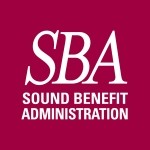HRA Administration
HRAs for All
HRAs offer a variety of programs for all sizes and types of employers. Watch our videos to find out which HRA may be best for your organization.
Why SBA for HRA Plan Administration?
HRAs, while not a particularly complicated concept, have some tricky provisions and can be confusing for participants. Three versions of the HRA, the Qualified Small Employer HRA (QSEHRA), the Individual Coverage HRA (ICHRA) and the Excepted Benefit HRA (EBHRA) provide employers of all sizes more flexibility in offering an HRA to employees regardless of the presence of a group medical plan.
Additionally, as HRAs are a COBRA eligible benefit, if SBA is also the COBRA administrator, we can automatically calculate the HRA COBRA premium.
What should you know about HRAs?
- HRAs are traditionally used to help employers offset the costs to employees of higher deductible medical plans.
- The premium savings from the higher deductible plan often times will cover expected HRA claims and administrative expenses.
- With respect to employee utilization, a PPO medical plan will typically see between 7% – 15% of covered individuals submitting reimbursement requests in a calendar year.
- By IRS rules, company owners often cannot participate in an HRA. Only C Corporation owners can participate. And, if you are a Sub-Chapter S Corporation, employees who are related to you cannot participate.
- You may match a PPO high deductible medical plan or a Health Savings Account (HSA) medical plan with an HRA. Special considerations must be addressed when using an HSA-qualified medical plan in conjunction with an HRA.
QSEHRAs, ICHRAs & EBHRAs
- QSEHRAs are for smaller employers with under 50 employees and have annual statutory limits on the amount of reimbursement allowed. Individual and Medicare premiums, as well as out-of-pocket medical/dental/vision expenses can be reimbursed.
- ICHRAs can be used by employers of any size and have no cap on the amount of reimbursement. Individual and Medicare premiums, as well as out-of-pocket medical/dental/vision expenses can be reimbursed. An ICHRA can be offered to specific classifications of employees who are not eligible for the group medical plan.
- EBHRAs can be used by employers of any size for reimbursement of dental & vision premiums, as well as medical/dental/vision expenses subject to an annual statutory limits. Participants in an EBHRA must be eligible for the group medical plan.
Please see our side-by-side comparison for an outline of the differences between these programs.
For ongoing HRA administration, SBA will:
- Create enrollment materials, plan documents and Summary Benefits Coverage (SBC).
- Conduct required annual non-discrimination testing.
- Send monthly statements of account showing the calendar year claims to date.
- Assist HRA participants who are confused about where to find the deductible or coinsurance figures on their EOBs. Employees can call us and we will help them read their EOBs and complete the paperwork to start the reimbursement process. Often participants will ask, “Can I just send you everything and will you sort it out?” and the answer is yes, we will do everything to have a satisfied participant.
Search
Our latest subject matter articles
FSA/HRA Claim Denied? What now?
Be it an ineligible expense or a lack of back-up, sometimes we deny an FSA or HRA claim. Can the participant appeal and, if so, what is the process? Gina explains.
Question of the Month: What is the difference between a grace period and a run-out?
They both are extensions of time, but what they allow extensions for are different. Gina explains FSA/HRA run-outs and grace periods in our Question of the Month.
Question of the Month: What happens when you outgrow a QSEHRA?
Yay! Your company grew! But Yikes! Are you too big for your QSEHRA?
Question of the month: After termination, when do pre-tax programs end?
When an employee terminates, pre-tax programs don’t necessarily follow the same timelines as medical plans. Gina explains.
The Clock is Ticking: The End of the National Emergency Rules for FSAs/HRAs is Near!
The National Health Emergency has ended. What does this mean for FSA and HRA claims? Find out!





